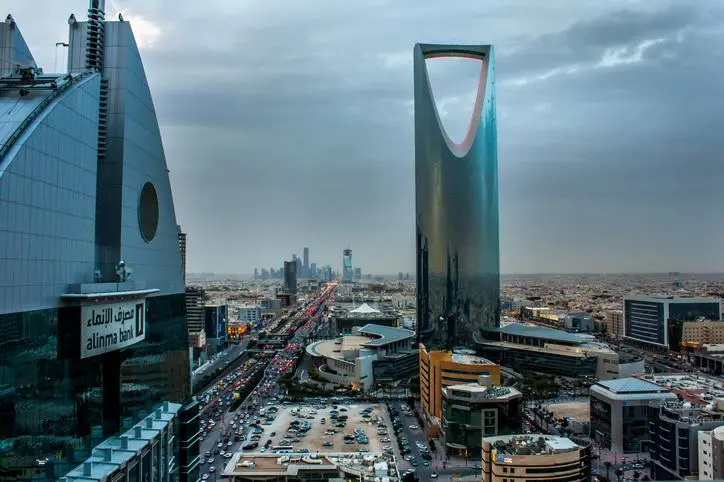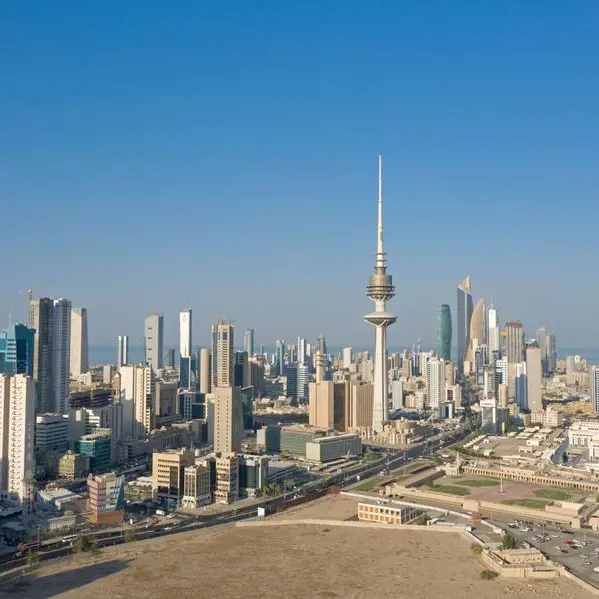PHOTO
Recent measures taken by Saudi Arabia and other Gulf Cooperation Council (GCC) countries are part of a new generation of fiscal management. They try to maintain a delicate balance by heeding the call by the G20, which Saudi Arabia chairs this year, for additional government spending to maintain economic growth in the face of global recession, while also following the International Monetary Fund’s advice to safeguard fiscal sustainability. We see part of that balancing in action in the continuous tax recalibrations in Saudi Arabia.
On Oct. 2, Saudi Arabia introduced new incentives to reverse the contractionary effects of earlier fiscal measures on real estate and stimulate this sector, which represents a significant component of the Saudi economy. King Salman’s order repealed the value added tax (VAT) on real estate transactions and replaced it with a lower tax. It also raised the threshold for first-home buyers and exempted inputs for real estate developers from tax.
The measures are part of Saudi Arabia’s efforts to stimulate the economy out of a recession caused by the twin crises of the coronavirus disease (COVID-19) pandemic and the sharp drop in oil revenue. Recent reports have documented the extent to which those two crises were a drag on the region’s economy during the first half of 2020. They show that GCC economies were seriously affected by the combined repercussions of COVID-19, weakened global demand, and the sharp fall in oil prices. The recession is, of course, worldwide and it may take the global economy some time to pull out of it completely.
Since the GCC economy relies heavily on global demand for energy and petrochemicals, the health of the world economy affects the speed at which member countries will return to healthy growth rates. Fortunately, most GCC countries are able to speed up their recovery through stimuli such as the tax cuts introduced by Saudi Arabia this month. In response to the economic fallout, they have taken measures to bolster demand and maintain their citizens’ welfare. They are in the enviable position of being able to draw down some of their reserves or sell investments to fund effective stimulus packages without jeopardizing their long-term fiscal sustainability. That ability may be curtailed if the global recession lasts much longer, meaning additional fiscal measures and cuts in subsidies and handouts may become necessary.
In a report published last week, the GCC Statistical Center (GCC-STAT) documented a sharp decline in overall economic performance in most GCC states during the first quarter of 2020. The combined GCC gross domestic product (GDP) stood at $383 billion at the end of the first quarter, with an annualized GDP of about $1.5 trillion. Q1 GDP dropped a full 8 percentage points from Q4 of 2019. Year-on-year, GDP in Q1 of 2020 shrank by 4.6 percent.
Also last week, Saudi Arabia’s General Authority for Statistics (GAS) published key economic reports for the Saudi economy during the second quarter. Saudi Arabia is the largest GCC economy, representing about 48 percent of GCC GDP, and, as such, it weighs heavily on all overall GCC economic indicators.
The GAS reports show an even greater negative impact in Q2 of 2020 of the pandemic and drop in oil revenue than was seen in the first quarter. Overall, GDP (in constant prices) declined by 7 percent in Q2 compared to Q1. While the oil sector declined by 5.3 percent, non-oil sectors declined by 8.2 percent. The ratios are higher when configured in nominal prices.
The government sector weathered the recession better than others, shrinking by only 3.5 percent, reflecting the effects of the stimulus packages adopted by the government. The private sector bore the brunt of the recession, declining by 10.1 percent, as non-government economic activities took a greater hit because of the lockdowns during Q2. As is the trend worldwide, the hardest hit were activities in wholesale and retail trade, as well as the hospitality sector (hotels and restaurants), which shrank by more than 18 percent. Transport took a similar hit, declining by 16 percent. Somewhat surprisingly, financial services, banking and real estate activities were the least affected, declining by about 1 percent during Q2, according to the GAS reports.
External trade also took a serious hit in Q2 in Saudi Arabia. Imports declined by 24 percent compared to Q2 of 2019, reflecting weakened demand and also the considerable supply chain disruptions overseas, especially in China — a main source of Saudi imports and the country where COVID-19 originated, leading to factory closures and transport hiccups. Exports also fell sharply, by about 56 percent, reflecting the sharp decline in oil prices and weak demand. The current account registered a large deficit in Q2, at about 12 percent of GDP, compared to a surplus of about 6 percent in Q2 last year.
On July 1, Saudi Arabia introduced new fiscal measures, including tripling the VAT on most products and services from 5 to 15 percent in a bid to safeguard fiscal sustainability. Q3 reports are expected to measure the initial impact of this step, which may act as a drag on growth. The tax cut announced this month for real estate transactions is meant to soften that impact, but it may not be felt before the fourth quarter.
Saudi Arabia has taken the lead on recent fiscal adjustments, especially value added and excise tax levels and the timing of their introduction. The reports published by the GCC-STAT and GAS provide useful information to assess the impact of those steps. Policymakers throughout the GCC should take advantage of the transparency of these reports and act accordingly.
The silver lining in the current doom and gloom is that the forecast for the rest of 2020 and 2021 is brighter than previously thought, and growth may pick up faster than expected. If that happens, another revision of fiscal policy may be needed to speed up the recovery.
- Dr. Abdel Aziz Aluwaisheg is the GCC Assistant Secretary-General for Political Affairs & Negotiation, and a columnist for Arab News. The views expressed in this piece are personal and do not necessarily represent GCC views. Twitter: @abuhamad1
Copyright: Arab News © 2020 All rights reserved. Provided by SyndiGate Media Inc. (Syndigate.info).





















